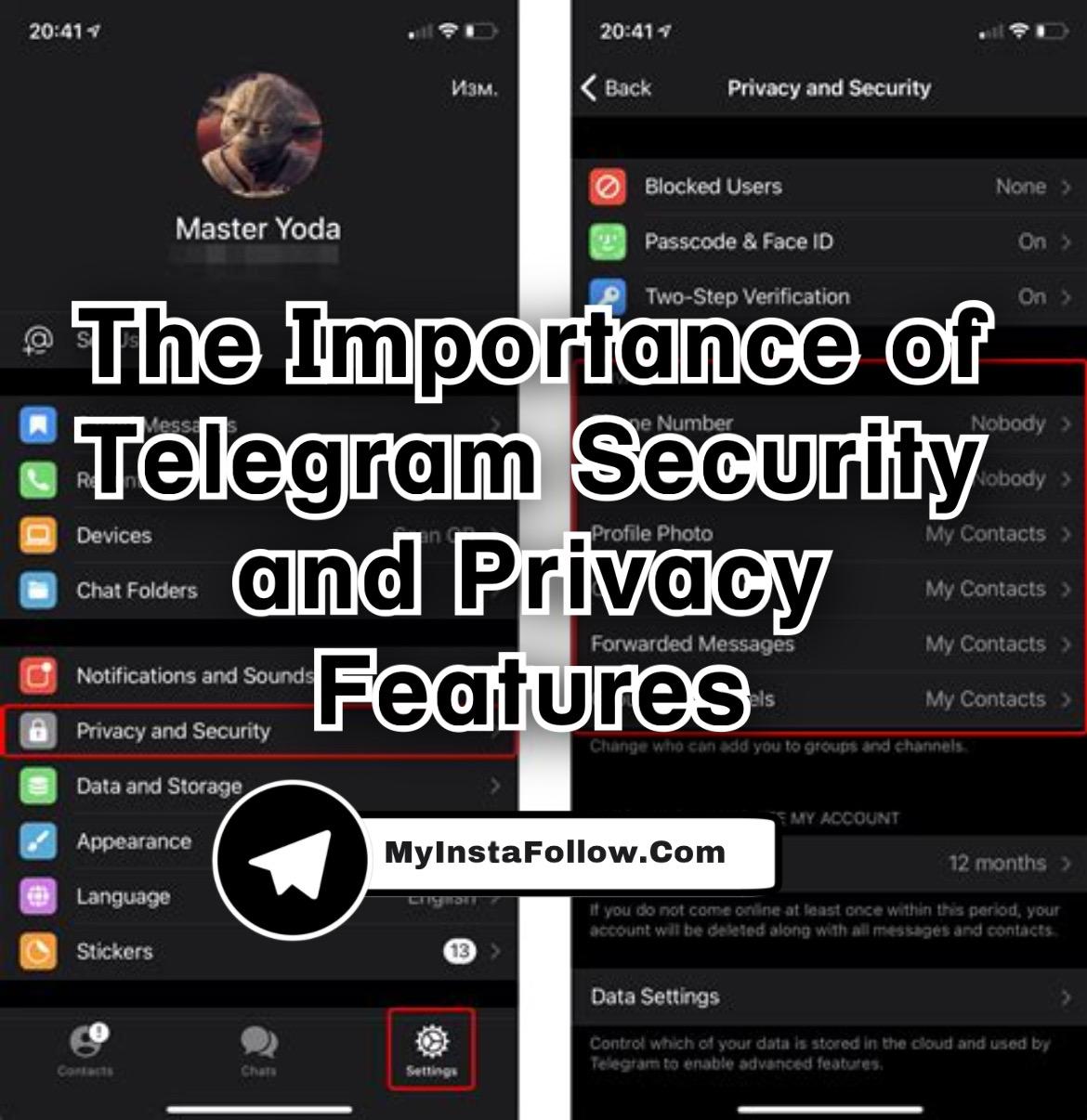In the world of messaging apps, Telegram has carved out a significant niche. With over 700 million active users, it’s become a favorite for those seeking a blend of speed and privacy. Launched in 2013 by the Durov brothers, it quickly gained traction, especially among users looking for an alternative to mainstream platforms. But what makes Telegram so appealing? Its features, like channels, bots, and end-to-end encryption in secret chats, draw people in. However, with increased use comes the question: can
Understanding How Telegram Works

Telegram operates on a cloud-based platform, which means your messages are stored online, accessible from any device with your account. This setup offers convenience but also raises questions about data security. Here’s a closer look at the key components that define how Telegram works:
- Cloud Storage: Telegram’s unique feature allows users to access their messages from multiple devices seamlessly. This is great for multitaskers but presents privacy concerns, as data is stored on Telegram’s servers.
- Encryption: Telegram uses two types of encryption: server-client encryption for regular chats and end-to-end encryption for secret chats. While regular chats are encrypted during transmission, they can technically be accessed on Telegram’s servers.
- Secret Chats: For those who prioritize privacy, Telegram offers secret chats. These chats use end-to-end encryption, ensuring that only the sender and the recipient can read the messages. They also come with self-destruct timers, adding another layer of security.
However, it’s essential to remember that while Telegram emphasizes privacy, it’s not completely foolproof. The app collects some metadata, such as your phone number, contacts, and usage patterns, to provide a better experience. This data could potentially be accessed under legal circumstances.
Moreover, the open-source nature of Telegram's bot API allows developers to create bots that can automate tasks or provide services. While this is beneficial, it can also introduce vulnerabilities if not managed properly. Users should be cautious about the bots they interact with, as malicious bots could compromise their privacy.
In summary, understanding how Telegram works is crucial for anyone concerned about their privacy. The combination of cloud storage and encryption methods creates a complex landscape where convenience and security often trade off against each other. As we explore whether Telegram can be tracked, it's vital to consider these aspects of how the platform operates.
Also Read This: How to Retrieve Deleted Telegram Messages: Methods to Recover Lost Chats
3. Privacy Features of Telegram

When it comes to messaging apps, privacy is often at the forefront of users' minds. Telegram has made a name for itself with a variety of privacy features that appeal to those looking for secure communication options. Let's explore some of the key features that make Telegram a favorite among privacy-conscious users.
End-to-End Encryption
One of Telegram's standout features is its end-to-end encryption, but here's the catch: it's only available in "Secret Chats." In these chats, your messages are encrypted from the moment they leave your device until they reach the recipient. This means that even Telegram itself cannot access the messages exchanged in a Secret Chat. So, if you're discussing sensitive topics, using Secret Chats is your best bet.
Self-Destructing Messages
Another intriguing feature is the option for self-destructing messages. You can set a timer for how long your messages remain visible to the recipient—from a few seconds to a week. Once the timer expires, the messages disappear automatically. It’s a great way to share content that you don’t want to linger around.
Privacy Settings
- Last Seen & Online: Telegram allows you to control who can see your last seen status. You can set it to "Nobody," "My Contacts," or "Everybody." This empowers you to manage your visibility.
- Profile Photo: You can also choose who can see your profile picture, giving another layer of anonymity if needed.
- Forwarding Messages: You can disable message forwarding for specific chats, meaning the recipient can’t share your messages without your permission.
Telegram goes a step further by allowing users to remain anonymous. You can join groups and channels without revealing your phone number, as the app allows you to create a username. This feature is particularly useful for whistleblowers and activists.
However, it's essential to keep in mind that while these features enhance privacy, they are not foolproof. Users must remain vigilant and understand that the app's default chat settings do not have the same level of security as Secret Chats. Overall, Telegram offers a robust set of privacy tools, but it's crucial for users to know how to use them effectively.
Also Read This: How to Join a Telegram Session and Stay Updated
4. Tracking Mechanisms: Can Telegram Be Tracked?
The question of whether Telegram can be tracked is multifaceted. While Telegram is designed with privacy in mind, there are still methods through which users can be tracked under certain circumstances. Let’s break down the various tracking mechanisms and what they mean for Telegram users.
IP Address Tracking
When you connect to Telegram, your device communicates with the Telegram servers. This interaction can potentially expose your IP address. If someone were determined enough—such as law enforcement with the right legal permissions—they could theoretically trace your IP address back to your location. However, if you're using a VPN, your actual IP could remain hidden, adding an extra layer of security.
Metadata Collection
While Telegram encrypts message content, it still collects metadata from your interactions. This includes information like who you chat with and when. Although the content of your messages remains private, this metadata can reveal a lot about your communication habits. For example, it can show patterns of your interactions, which can be analyzed by third parties.
Social Engineering
In some cases, tracking isn't about technical measures but rather social engineering tactics. If someone knows your phone number or username, they might attempt to hack your account through phishing methods. Always be cautious of unsolicited messages asking for personal information or links to click.
Third-party Apps
Integrating third-party applications with Telegram can also pose risks. If you use bots or third-party services, they may have access to your messages or data, depending on the permissions you grant them. Always check the privacy policies of these services before integrating them with your Telegram account.
In conclusion, while Telegram offers robust privacy features, users must remain aware of the potential tracking mechanisms. Understanding how your data can be exposed is crucial for maintaining your privacy. Always take proactive steps to protect your information, such as using VPNs and being cautious with third-party integrations.
Also Read This: How to Search Private Telegram Channels Without Getting Caught
5. Risks of Using Telegram for Privacy-Conscious Users
While Telegram champions itself as a privacy-focused messaging platform, there are some risks that privacy-conscious users should be aware of. It’s important to understand these risks to make informed choices about your communication methods.
1. Data Retention and Storage: Although Telegram claims to have robust privacy policies, it still stores messages on its servers. This means that theoretically, your messages could be accessed if Telegram were compelled by law enforcement or if their servers were compromised. Unlike applications that employ end-to-end encryption by default, Telegram only offers it for its "Secret Chats." Regular chats are stored in the cloud, which can be less secure.
2. Metadata Exposure: Even if your messages are encrypted, metadata can still be a concern. Metadata includes information like the time messages were sent, who you converse with, and your online status. This data can be collected and analyzed, revealing patterns about your communication habits that might compromise your privacy.
3. Group Chats and Channels: Participating in public channels or large group chats can expose your phone number and identity to a wider audience. If privacy is your top priority, consider limiting the groups you join and being cautious about sharing personal information within these settings.
4. Bot Vulnerabilities: Telegram allows the use of bots for various functionalities, but these bots can also be a privacy risk. Some bots may not have strict privacy policies, and using them can lead to the unintended sharing of personal data. Always verify the credibility of a bot before engaging with it.
5. Government Surveillance: In some countries, especially where digital surveillance is prevalent, using Telegram could attract unwanted attention. If you’re in a situation where government surveillance is a concern, it’s wise to consider alternative platforms or additional privacy measures.
In summary, while Telegram provides various privacy features, the inherent risks associated with data retention, metadata exposure, and the use of bots make it essential for users to remain vigilant. Understanding these risks helps you navigate the platform more wisely.
6. Best Practices for Maintaining Privacy on Telegram
So how can you minimize risks while using Telegram? Here are some practical best practices for maintaining your privacy:
- Use Secret Chats: For sensitive conversations, always opt for "Secret Chats" which utilize end-to-end encryption. This ensures that only you and the recipient can read the messages.
- Disable Cloud Backup: If possible, avoid using Telegram's cloud backup feature to prevent your messages from being stored on their servers. This can further enhance your privacy.
- Limit Personal Information: Be cautious about sharing personal details in chats or profiles. The less you share, the lower the chances of exposure.
- Adjust Privacy Settings: Dive into the privacy settings of Telegram. You can restrict who can see your phone number, last seen status, and profile picture. This gives you greater control over your visibility.
- Be Wary of Bots: Only use trusted bots and avoid sharing sensitive information through them. Always check the permissions requested by any bot before interacting.
- Use a VPN: To add an extra layer of security, consider using a Virtual Private Network (VPN). This helps obscure your IP address, making it harder for third parties to track your internet activity.
- Stay Updated: Regularly update the Telegram app to ensure you have the latest security features and bug fixes. An outdated app can be more vulnerable to attacks.
By implementing these best practices, you can significantly enhance your privacy on Telegram. Remember, while the platform offers tools for privacy, it’s ultimately up to you to use them wisely!
 admin
admin








